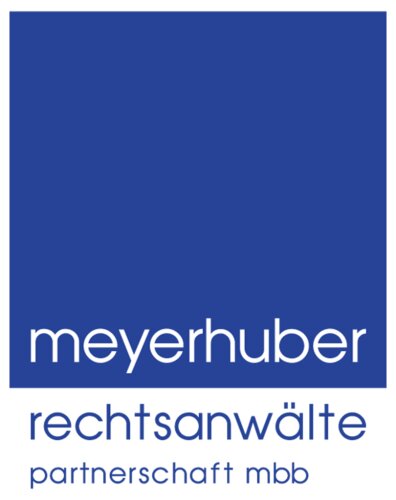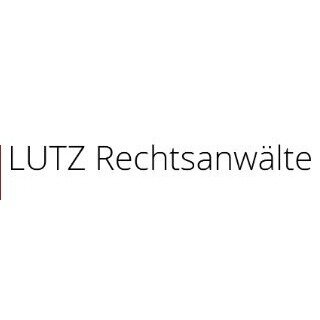Best Mining Law Lawyers in Germany
Share your needs with us, get contacted by law firms.
Free. Takes 2 min.
Or refine your search by selecting a city:
List of the best lawyers in Germany
About Mining Law in Germany
Mining Law in Germany governs the exploration and extraction of mineral resources. The essential legal framework is provided by the Bundesberggesetz (BBergG) or Federal Mining Act, which regulates mining activities, licensing, environmental requirements, supervision, and the rights and obligations of operators. The law aims to ensure the responsible and sustainable use of natural resources while balancing the interests of resource extraction with environmental protection and public safety. Both federal and state (Länder) laws can apply depending on the location and type of operation.
Why You May Need a Lawyer
Mining activities often involve complex regulations and multiple authorities. You might need legal advice in scenarios such as applying for licenses and permits, negotiating mineral rights or land access, handling disputes or liability claims, navigating environmental protection obligations, or seeking compensation for damages caused by mining activities. Legal support is also crucial in mergers and acquisitions involving mining assets, as well as in ensuring compliance with ongoing safety and operational requirements. If your activities impact other interests, such as property owners or local communities, a lawyer can help mitigate risks and ensure proper consultation procedures are followed.
Local Laws Overview
The core piece of legislation is the Bundesberggesetz (Federal Mining Act), which sets out regulations for mineral prospecting, exploration, and extraction. Key aspects include:
- Requirement for prospecting and extraction licenses issued by the relevant mining authority.
- Regulation of mining activities to protect workers, the environment, and public interests.
- Specific rules for different minerals, distinguishing between public and private ownership of resources.
- Obligations for environmental impact assessments and rehabilitation of affected areas after resource extraction.
- Coordination between federal, state, and sometimes EU requirements, especially regarding environmental and safety standards.
- Procedures for settling disputes and compensating affected third parties.
State authorities (Bergämter) are responsible for supervising mining operations, acting in accordance with both federal legislation and additional regional rules.
Frequently Asked Questions
What is considered a "mineral resource" under German Mining Law?
A "mineral resource" includes any substances that occur naturally underground or on the surface and are designated as minable by federal or state law. This covers solid minerals (such as coal, ores, salt), as well as certain gases and liquids (such as oil or natural gas).
What licenses or permits are required to start mining activities?
To explore or extract mineral resources, you must apply for a permit or license from the local mining authority (Bergamt). The precise type depends on the resource and activity - typically, this involves a prospecting license for exploration and an operating plan approval for extraction.
How long does it take to receive a mining license?
Processing times vary depending on the complexity of the project and the potential environmental impacts. Straightforward applications may take several months, but if environmental assessments or public consultations are needed, the process can take a year or more.
Does Mining Law require environmental impact assessments?
Yes. If the mining project will have significant environmental effects, an assessment is mandatory under the Federal Mining Act and environmental laws. This process ensures that environmental risks are identified, assessed, and mitigated before approvals are granted.
Can local communities object to mining projects?
Yes. Stakeholders, including local residents, landowners, and community organizations, have the right to participate in approval procedures and raise objections, especially during the environmental impact assessment process.
Are there restrictions on foreign investors participating in German mining projects?
Generally, Germany imposes no blanket restrictions on foreign ownership or investment in mining. However, foreign investors must comply with the same legal requirements as domestic operators regarding licensing, safety, and environmental protection.
What are the obligations regarding worker safety and health?
Mining operators must adhere to strict safety and health regulations set by the Mining Act and related occupational safety laws. This includes providing safe working conditions, regular inspections, and worker training.
What happens if mining activities cause environmental damage?
Operators are liable for environmental damage caused by their activities. They are obligated to restore or compensate for any harm and may face penalties or be required to pay for remediation under environmental laws.
How are disputes over mining rights resolved?
Disputes between parties, such as between mining companies or between operators and landowners, may be settled through administrative procedures, mediation, or through the courts if necessary.
What steps must be taken after mining operations end?
Upon conclusion of mining activities, operators are required to properly close sites, remove equipment, and rehabilitate the land in accordance with approved closure plans to mitigate any long-term environmental or safety risks.
Additional Resources
For further information or assistance, the following resources can be highly beneficial:
- Federal Ministry for Economic Affairs and Climate Action (Bundesministerium für Wirtschaft und Klimaschutz - BMWK) - provides guidance on federal mining law and policy.
- Relevant State Mining Authorities (Bergämter der Länder) - responsible for issuing permits and local supervision.
- German Mining Association (Bundesverband der Deutschen Industrie - BDI, Fachgruppe Bergbau) - offers industry perspectives and legal updates.
- Federal Institute for Geosciences and Natural Resources (Bundesanstalt für Geowissenschaften und Rohstoffe - BGR) - provides geological and mining data.
- Environmental and nature protection organizations for guidance on environmental standards in mining.
Next Steps
If you need legal assistance in the field of Mining Law in Germany, begin by clearly identifying your specific legal issue, such as licensing, compliance, or dispute resolution. Gather all relevant documents and information about your mining project or interests. Consult a lawyer with expertise in Mining Law and local regulations as early as possible, as mining projects are often subject to intricate and time-consuming approval processes. You can seek recommendations from the above-mentioned organizations or contact your local bar association to find a qualified specialist. Early legal advice will help you avoid costly delays, ensure compliance, and protect your interests throughout all phases of your mining activities.
Lawzana helps you find the best lawyers and law firms in Germany through a curated and pre-screened list of qualified legal professionals. Our platform offers rankings and detailed profiles of attorneys and law firms, allowing you to compare based on practice areas, including Mining Law, experience, and client feedback.
Each profile includes a description of the firm's areas of practice, client reviews, team members and partners, year of establishment, spoken languages, office locations, contact information, social media presence, and any published articles or resources. Most firms on our platform speak English and are experienced in both local and international legal matters.
Get a quote from top-rated law firms in Germany — quickly, securely, and without unnecessary hassle.
Disclaimer:
The information provided on this page is for general informational purposes only and does not constitute legal advice. While we strive to ensure the accuracy and relevance of the content, legal information may change over time, and interpretations of the law can vary. You should always consult with a qualified legal professional for advice specific to your situation.
We disclaim all liability for actions taken or not taken based on the content of this page. If you believe any information is incorrect or outdated, please contact us, and we will review and update it where appropriate.
Browse mining law law firms by city in Germany
Refine your search by selecting a city.













